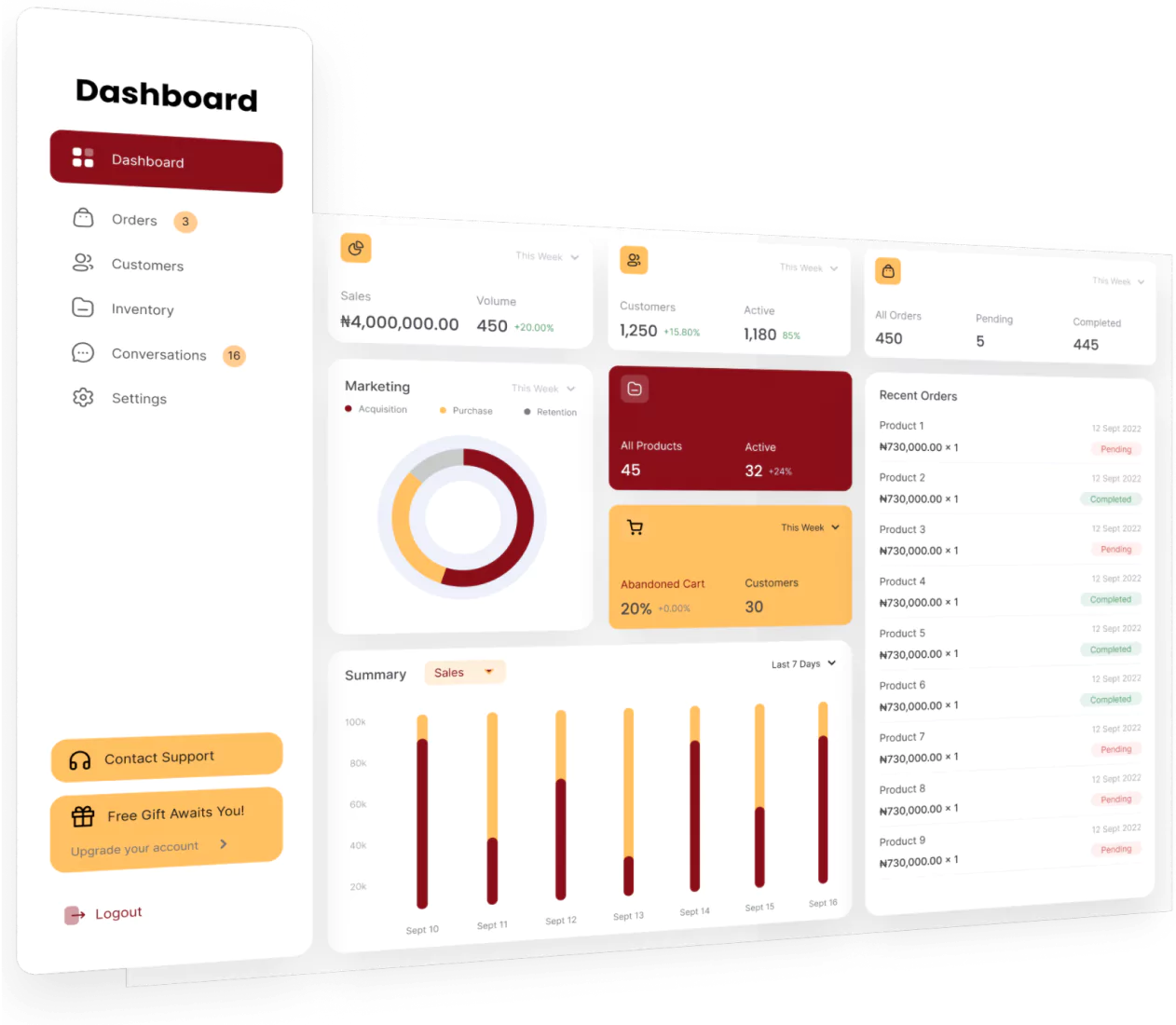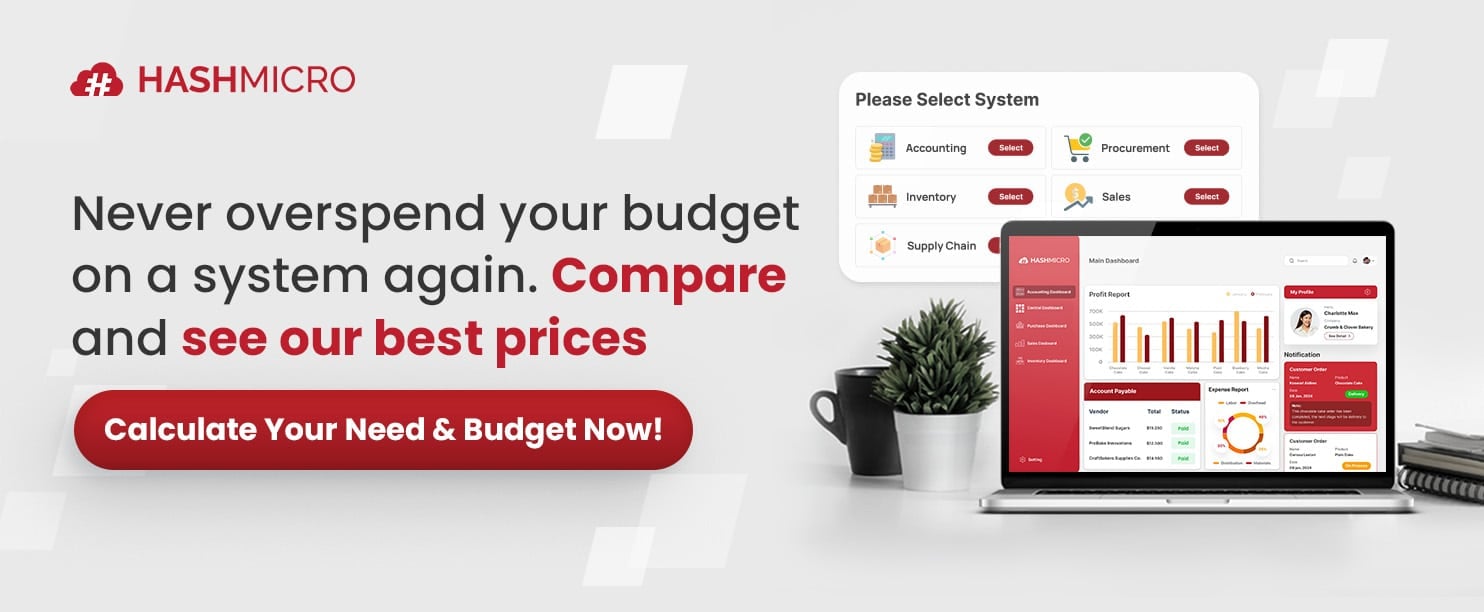Whether you’re an experienced manager or a C-Suite executive, grasping the key differences between Managerial Accounting and Financial Accounting can significantly impact your company’s financial strategy. While both are crucial in guiding business performance their distinct purposes serve different stakeholders and influence decisions.
90% of businesses have already implemented an accounting system to streamline their financial processes. In this article, we’ll explore the key differences between Managerial Accounting and Financial Accounting, highlighting their importance in shaping your organization’s strategy. By the end, you’ll gain valuable insights into how each accounting approach can contribute to your business’s overall success.
Consider leveraging HashMicro’s comprehensive performance management software to further enhance your financial management capabilities. Our advanced solutions streamline Managerial and Financial Accounting processes, offering real-time data insights, automation, and robust reporting tools.
With HashMicro, you can make more informed decisions, improve efficiency, and drive sustainable growth for your organization. Don’t miss out on the opportunity to elevate your financial strategy. Choose HashMicro and gain a competitive edge in today’s dynamic business landscape. Let’s explore the key distinctions that will empower you to unlock your business’s full potential.
Table of Content
Content Lists

Key Takeaways
|
What is Financial Accounting?
Financial accounting is recording, summarizing, and reporting a company’s financial transactions over a specific period. It is typically reflected in key financial statements like the balance sheet, income statement, and cash flow statement.
The main objective of financial accounting is to deliver accurate and trustworthy information to external stakeholders, such as investors, regulators, and creditors, through tools like distribution accounting software. This enables stakeholders to make informed decisions about the company’s financial health.
What is Managerial Accounting?
Management accounting, or managerial accounting focuses on preparing, analyzing, and presenting financial data to support internal management in making informed business decisions. It offers insights that help managers optimize resources, control costs, and improve overall business performance.
Unlike financial accounting intended for external stakeholders, management accounting provides internal managers with detailed financial reporting software and non-financial data to aid in planning, controlling, and decision-making. This includes budgeting, forecasting, performance analysis, cost management, and evaluating concepts such as amortization to plan long-term resource allocations effectively.
What are the Key Differences Between Managerial Accounting and Financial Accounting?
Managerial accounting and financial accounting serve distinct purposes within a business, both rooted in fundamental accounting principles. Below is a table that highlights the key differences between managerial accounting and financial accounting:
|
Aspect |
Managerial Accounting |
Financial Accounting |
|
Purpose |
Provides information for internal decision-making and management. |
Focuses on reporting financial data to external stakeholders like investors, regulators, and creditors. |
|
Primary Users |
Internal management (e.g., executives, department heads). |
External stakeholders (e.g., investors, regulators, creditors). |
|
Focus |
Future oriented, focusing on internal planning, budgeting, and performance analysis. |
Historical, focusing on past financial performance and compliance. |
|
Data |
Detailed, often includes both financial and non-financial data. |
Mainly financial data such as income statements, balance sheets, and cash flow statements. |
|
Reporting |
Internal reports such as budgets, forecasts, and performance evaluations. |
External reports such as income statements, balance sheets, and annual reports. |
|
Regulatory Requirements |
Not typically subject to strict external regulations. |
Must comply with external standards and regulations (e.g., GAAP, IFRS). |
Improve Company Financial Processes with HashMicro Accounting Software

HashMicro’s accounting software, including our advanced distribution accounting software, provides the ideal solution for addressing the managerial accounting vs financial accounting distinction. This is made possible as HashMicro’s system seamlessly integrates both types of accounting without any limitations. As a leading Southeast Asian vendor HashMicro stands out as Malaysia’s go to smart business solution.
With features such as a free demo, free user add-ons, flexible customization, and extensive scalability options, HashMicro has attracted numerous businesses searching for the best accounting solution. Its user-friendly interface ensures that anyone can efficiently operate the system regardless of technical expertise.
Whether you require internal reporting for managerial accounting or financial reports for external stakeholders, HashMicro covers all these needs. Below are some of its key features:
- Bank integration: Automatically match transaction data from the bank with internal bookkeeping in the system for seamless financial management.
- Multi-level analysis: Gain real-time insights into financial transactions, which can be filtered by various categories such as projects, branches, and more.
- Profit & loss reports: Compare actual gains and losses against the original budget and prior estimates to evaluate financial performance.
- Cash flow reports: Track the company’s cash inflows and outflows to ensure liquidity and maintain financial stability.
- Budget forecasting: Leverage historical data to forecast future budgets, plan finances, allocate resources efficiently, and make informed decisions.

Conclusion
Understanding the differences between managerial accounting and financial accounting is essential for selecting the right financial tools to drive your business forward. For Malaysian entrepreneurs, distinguishing between financial accounting and management accounting is crucial to improving efficiency and ensuring effective financial management.
HashMicro’s accounting system offers a comprehensive solution that caters to managerial and financial accounting needs. It was specifically designed to address the unique challenges faced by Malaysian entrepreneurs. With features that enhance accuracy, streamline processes, and provide real-time insights, HashMicro helps businesses gain better control over their finances.
To help you experience these benefits firsthand, HashMicro offers a free demo. This allows you to explore the system’s capabilities and see how it can improve your financial operations. Start your journey towards more efficient financial management today with HashMicro.

FAQ Managerial Accounting and Financial Accounting
-
How do Managerial and Financial Accounting differ?
The primary difference lies in their purpose and audience. Managerial accounting serves internal management with detailed, forward-looking data, while financial accounting targets external users with historical, standardized reports.
-
Can a business use both Managerial and Financial Accounting?
Yes, businesses often use both. Managerial accounting drives internal growth and decision-making, while financial accounting maintains external trust and legal compliance.
-
How can businesses integrate both accounting types effectively?
Using advanced ERP systems, such as HashMicro’s Accounting Software, businesses can integrate both accounting types to enhance decision-making and maintain compliance seamlessly.































